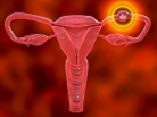Determining the Factors Predicting the Success of Medical Management in Patients with Ectopic Pregnancy
DOI:
https://doi.org/10.31661/gmj.vi.3761Keywords:
Ectopic Pregnancy; Methotrexate; Human Chorionic Gonadotropin HormoneAbstract
Bachground: Ectopic pregnancy is considered the most common cause of pregnancy-related deaths in the first trimester. Methotrexate is recognized as an effective drug for the treatment of ectopic pregnancy. The aim of this study was to determine the associated and predictive factors for success in medical treatment among patients with ectopic pregnancy (EP). Materials and Methods: After collection of Demographic information, serum β-hCG levels and ultrasound findings were evaluated and compared between two groups: those with successful medical treatment and those without. Results: The mean β-hCG level have not significant difference between the two groups (P=0.806). The frequency of previous IUD use in the successful treatment group was 8%, while there were no cases in the failure group; however, this difference was not statistically significant (P=0.547). The frequency of prior EP, the observed frequency of hematoma and the frequency of tubal ring observation, which also showed no significant difference (respectively P=0.9, P=0.9 and P=0.111). Logistic regression analysis revealed that none of the investigated variables were significant predictors of treatment success. However, the presence of a tubal ring (OR: 6.500, 95% CI: 0.799–52.897, p = 0.080) and increased endometrial thickness (OR: 1.317, 95% CI: 0.971–1.786, p = 0.077) showed borderline significance. Commonly considered factors, such as gestational age, β-hCG levels, patient age, parity, and gravidity, did not significantly influence treatment success. The study highlights a high success rate for single-dose methotrexate therapy and the potential utility of tubal ring and endometrial thickness as clinical indicators, warranting further investigation. Conclusion: The results of this study indicate that single-dose methotrexate treatment for tubal ectopic pregnancy leads to a high success rate. Given the sample size of this study, none of the variables had a significant impact on treatment success or predictive power.
References
Lin EP, Bhatt S, Dogra VS. Diagnostic clues to ectopic pregnancy. Radiographics. 2008;28(6):1661-71.
https://doi.org/10.1148/rg.286085506
PMid:18936028
Di Gennaro D, Damiani GR, Muzzupapa G, Stomati M, Cicinelli R, Gaetani M et al. Ectopic pregnancy: An overview. Clinical and Experimental Obstetrics & Gynecology. 2022;49(12):262.
https://doi.org/10.31083/j.ceog4912262
American College of Obstetricians and Gynecologists ACOG Practice Bulletin No. 193: tubal ectopic pregnancy. Obstetrics and gynecology. 2018 Mar;131(3):e91-103.
https://doi.org/10.1097/AOG.0000000000002560
Tsakiridis I, Giouleka S, Mamopoulos A, Athanasiadis A, Dagklis T. Diagnosis and management of ectopic pregnancy: a comparative review of major national guidelines. Obstetrical & gynecological survey. 2020;75(10):611-23.
https://doi.org/10.1097/OGX.0000000000000832
PMid:33111962
Li C, Zhao W-H, Zhu Q, Cao S-J, Ping H, Xi X et al. Risk factors for ectopic pregnancy: a multi-center case-control study. BMC pregnancy and childbirth. 2015;15:1-9.
https://doi.org/10.1186/s12884-015-0613-1
PMid:26296545 PMCid:PMC4546260
Ranji GG, Usha Rani G, Varshini S. Ectopic pregnancy: risk factors, clinical presentation and management. The Journal of Obstetrics and Gynecology of India. 2018;68:487-92.
https://doi.org/10.1007/s13224-017-1075-3
PMid:30416277 PMCid:PMC6207546
Houser M, Kandalaft N, Khati NJ. Ectopic pregnancy: a resident's guide to imaging findings and diagnostic pitfalls. Emergency radiology. 2022 Feb 1:1-2.
https://doi.org/10.1007/s10140-021-01974-7
PMid:34618256
Cheng LY, Lin PY, Huang FJ, Kung FT, Chiang HJ, Lin YJ, Lan KC. Ectopic pregnancy following in vitro fertilization with embryo transfer: A single-center experience during 15 years. Taiwan J Obstet Gynecol. 2015;54(5):541-5.
https://doi.org/10.1016/j.tjog.2015.08.004
PMid:26522107
WHO. Caesarean section rates continue to rise, amid growing inequalities in access,. 3 December 2022. https://www.who.int/news/item/16-06-2021-caesarean-section-rates-continue-to-rise-amid-growing-inequalities-in-access. Accessed 3 December 2022.
Obeagu EI, Faduma MH, Uzoma G. Ectopic Pregnancy: A Review. Int J Curr Res Chem Pharm Sci. 2023;10(4):40-4.
https://doi.org/10.22270/ijmspr.v10i4.123
Cecchino GN, Araujo Júnior E, Elito Júnior J. Methotrexate for ectopic pregnancy: when and how. Archives of gynecology and obstetrics. 2014;290:417-23.
https://doi.org/10.1007/s00404-014-3266-9
PMid:24791968
Stovall DW, Van Voorhis BJ, Sparks AE, Adams LM, Syrop CH. Selective early elimination of luteal support in assisted reproduction cycles using a gonadotropin-releasing hormone agonist during ovarian stimulation. Fertility and sterility. 1998;70(6):1056-62.
https://doi.org/10.1016/S0015-0282(98)00356-2
PMid:9848295
Tanaka T. Treatment of interstitial ectopic pregnanacy with methotrexate: report of a successful case. Fertil steril. 1982;37:851-2.
https://doi.org/10.1016/S0015-0282(16)46349-1
PMid:7084507
Bottin P, Gnisci A, Crochet P, Butzbach P, Cravello L, Gamerre M, Agostini A. Prognostic value of early hCG changes after methotrexate injection for ectopic pregnancy. Gynecologie, Obstetrique & Fertilite. 2013;42(1):3-7.
https://doi.org/10.1016/j.gyobfe.2013.08.006
PMid:24309031
Ghanaie MM, Hoshyarmanesh S, Asgari SM, Galebin SMA, Fakor F. Predictive value of serum βHCG level in ectopic pregnancy: A cross sectional study. Health Science Reports. 2023;6(9):e1442.
https://doi.org/10.1002/hsr2.1442
PMid:37680207 PMCid:PMC10480407
Mirbolouk F, Yousefnezhad A, Ghanbari A. Predicting factors of medical treatment success with single dose methotrexate in tubal ectopic pregnancy: a retrospective study. Iranian journal of reproductive medicine. 2015;13(6):351.
Chegini V, Pakniat H, Shora M, Mirzadeh M, Lalooha F, Griffiths M, Alimoradi Z. Predictors of single-dose methotrexate treatment success in ectopic pregnancies: A retrospective cohort study. Clínica e Investigación en Ginecología y Obstetricia. 2024;51(4):100967.
https://doi.org/10.1016/j.gine.2024.100967
Abdelfattah-Arafa E, Abdussalam HF, Omar Saad M, El Ansari W. The predictors of successful methotrexate treatment of tubal ectopic pregnancy. Journal of Obstetrics and Gynaecology. 2024;44(1):2361456.
https://doi.org/10.1080/01443615.2024.2361456
PMid:38864434
Bonin L, Pedreiro C, Moret S, Chene G, Gaucherand P, Lamblin G. Predictive factors for the methotrexate treatment outcome in ectopic pregnancy: A comparative study of 400 cases. European Journal of Obstetrics & Gynecology and Reproductive Biology. 2017;208:23-30.
https://doi.org/10.1016/j.ejogrb.2016.11.016
PMid:27888702
Shatkin Hamish N, Wolf M, Tendler R, Sharon A, Bornstein J, Odeh M. Early prediction of methotrexate treatment outcome in tubal ectopic pregnancy based on days 0 and 4 human chorionic gonadotropin levels. Journal of Obstetrics and Gynaecology Research. 2020;46(7):1104-9.
https://doi.org/10.1111/jog.14259
PMid:32406562
Deniz S, Ali B, Canan U, Yılmaz AH, Olcay I, Burcu D, Fatma GK. Evaluation of the parameters in predicting single‐dose methotrexate therapy success for ectopic pregnancy. Journal of Obstetrics and Gynaecology Research. 2024;50(5):856-63.
https://doi.org/10.1111/jog.15923
PMid:38476034
Liu J, Kong H, Yu X, Zhou M, Liu X, Liu X et al. The role of endometrial thickness in predicting ectopic pregnancy after in vitro fertilization and the establishment of a prediction model. Front Endocrinol (Lausanne). 2022;13:895939. doi:10.3389/fendo.2022.895939.
https://doi.org/10.3389/fendo.2022.895939
PMid:36157457 PMCid:PMC9493494

Published
How to Cite
Issue
Section
License
Copyright (c) 2025 Galen Medical Journal

This work is licensed under a Creative Commons Attribution 4.0 International License.







